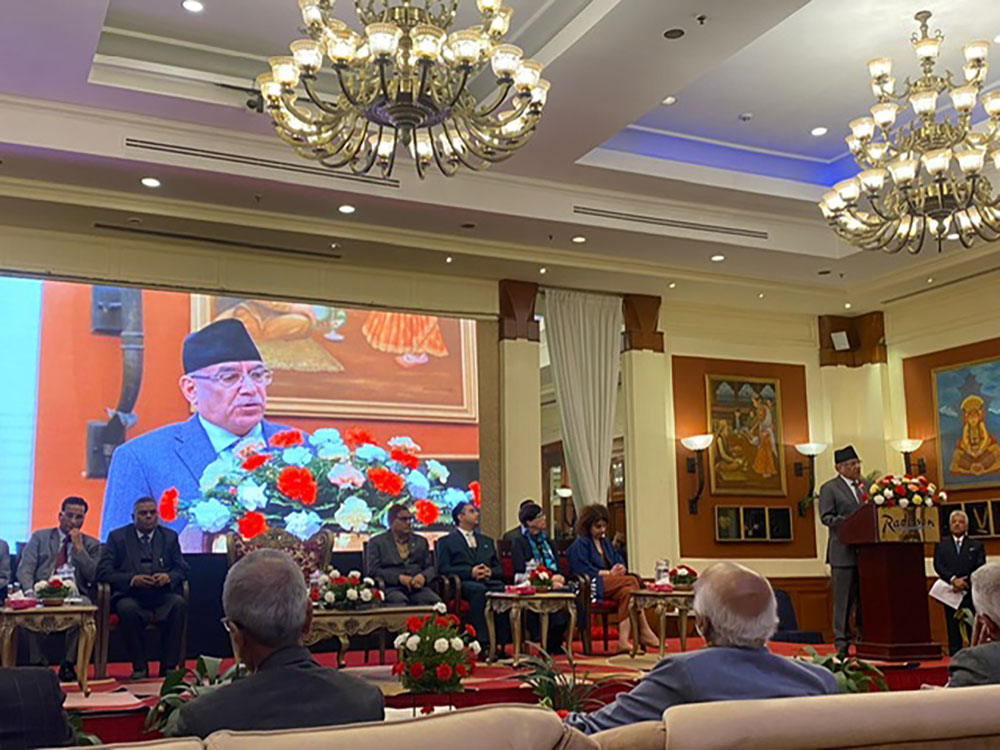YK Poudel
Bhutan, along with other south-east asian countries need to work on a comprehensive strategy to address the complexities on climate change, health and social equity—this is an immediate outcome of the recent COP28.
Bhutan, along with 122 other nations, endorsed the UAE Declaration on Climate and Health on December 3, 2023, committing to a promised funding window of one billion.
The Prime Minister of Nepal, Pushpa Kamal Dahal, addressing the programme on ‘South and South Asian Regional Research and Innovation Center for Climate Change, Health and Equity’ which ended on March 15, in Nepal stressed on the need for such a strategy to reduce the impact of climate change arising from increasing diseases, malnutrition, pollution and natural disasters in the community.
The theme of the regional dialogue this year is “Connecting the Dots Between Climate Change and Health.”
The climate crisis has emerged as both a public health and equity crisis. South and Southeast Asia, in particular, face mounting challenges, such as increased vulnerability to extreme weather events, rising rates of water-borne and vector-borne diseases, worsening air pollution, and other climate-related hazards.
Prime Minister Dahal also said that the problems facing countries in Asia today require comprehensive plans and programmes at the local level. “We must use research, innovation and local knowledge to empower our health systems and communities,” he said.
“Climate scientists have clearly said that greenhouse gas emissions must not just be maintained but reduced to overcome the limit of 1.5 degrees Celsius,” Prime Minister Dahal said. “Especially for less developed and mountainous countries, climate change is not only a harsh reality, but its consequences are very important.”
The Prime Minister also reflected on the regional hazards that have increased over the years: landslides, floods, forest fires, snow explosions and droughts are becoming frequent and terrible. “Such disasters have affected the weakest, the poor, women, children and tribal and caste groups have been killed,” he said.
Climate change and glacial mountains
According to a latest report from National Centre for Hydrology and Meteorology (NCHM) Bhutan, three benchmark glaciers, Gangjula, Thana, and Shodug, are witnessing glacial water loss in billion litres annually. “From 2016 to July 2022, Bhutan experienced over 32 extreme weather events including flash floods, landslides, snowfall, and pre-and post-monsoon disturbances claiming lives and destroying crops and properties,” the report states.
The glacial lakes and its surroundings are reported to be vulnerable to flooding—for instance, Thorthormi Lake after the avalanche that made the lake flood on October 30.
According to Bhutan Glacial Lake Inventory 2021, Bhutan records 567 glaciers covering 55.04Km square—Phochhu has the maximum. Of the glaciers, 17 are potentially dangerous—Punatsangchhu has 11, Mangdechhu has 3, Chamkhar chhu has two and one in Kurichhu.
Similarly, glaciers in the Himalayan regions are experiencing the impact of climate change, losing billions of gallons of glacial water annually, according to officials from the International Centre for Integrated Mountain Development (ICIMOD).
The Nationally Determined Contribution (NCD) report projects that Bhutan requires USD 0.385 billion for adaptation and USD 0.6 billion for mitigation initiatives in the short term and an additional USD 6,484.8 million for long-term climate financing projects—this includes investment in climate induced challenges such as loss and damage and health sector.
Climate change and health
South-East Asia Regional Office, World Health Organization on March 12, issued a public notification that links climate and health—an estimated 13.7 percent of the population of the region suffers from mental health conditions.
“The treatment gap for mental health conditions remains high—as high as 95 percent. More than 200 000 people die of suicide every year,” the report states.
According to the report, long-stay mental health institutions, including psychiatric hospitals and asylums, are often characterized by the absence of effective treatment, segregation, poor living conditions, lack of resources, and overcrowding.
“The transition from institutional care to community-based care is driven by a growing understanding of the negative impact of long-term institutionalization, advances in treatments, and recognition of the human rights and dignity of individuals with mental disorders,” the report states.
Additionally, as per the COP28 Declaration on Climate and Health, the countries agreed to promote steps to curb emissions and reduce waste in the health sector, including assessing greenhouse gas emissions, developing action plans, setting decarbonisation targets, and establishing procurement standards for national health systems.
The declaration at COP28, was the world’s first government acknowledgment of the escalating health impacts of climate change on countries and communities at the ground level.
The two-day regional workshop further discussed key challenges and opportunities—impact of climate change on health, gender disparities and equity will be discussed along with commitments on climate-related health issues.
The National Academy of Medicine, National Academy of Science and Technology, InterAcademy Partnership and other partners hosted the programme.


